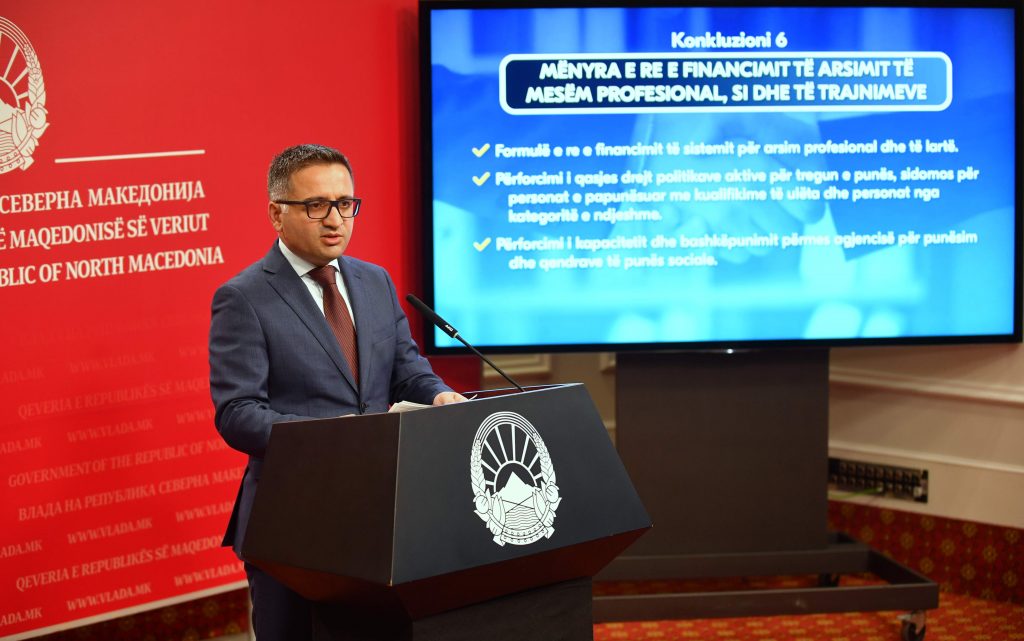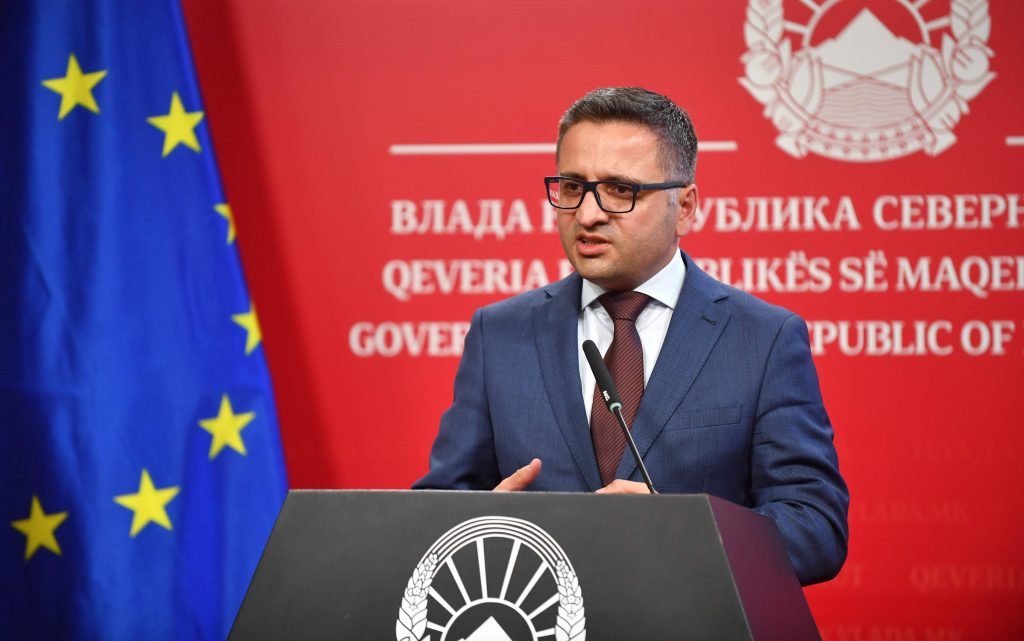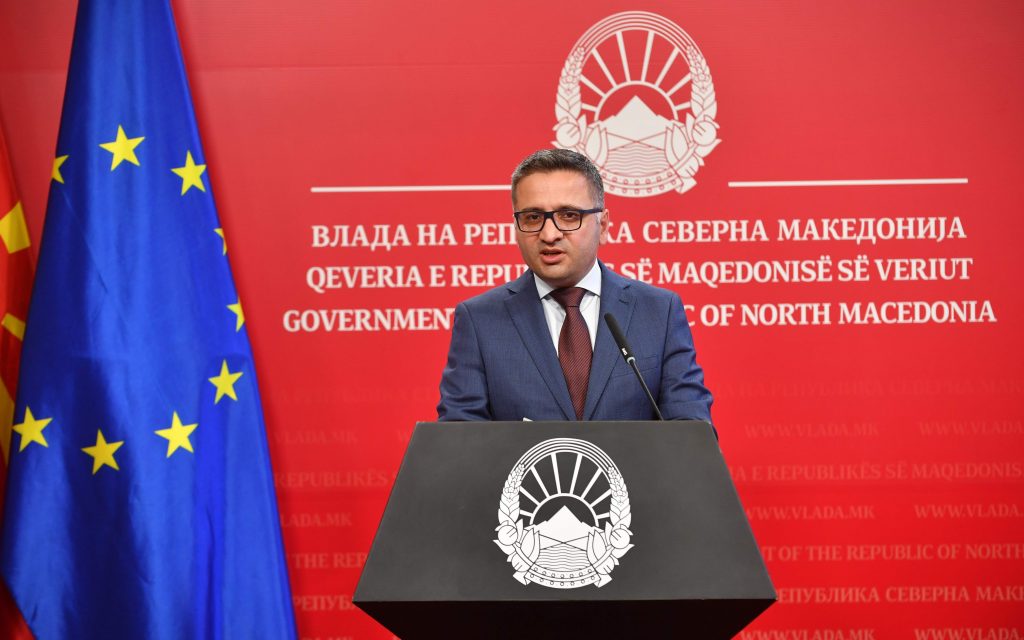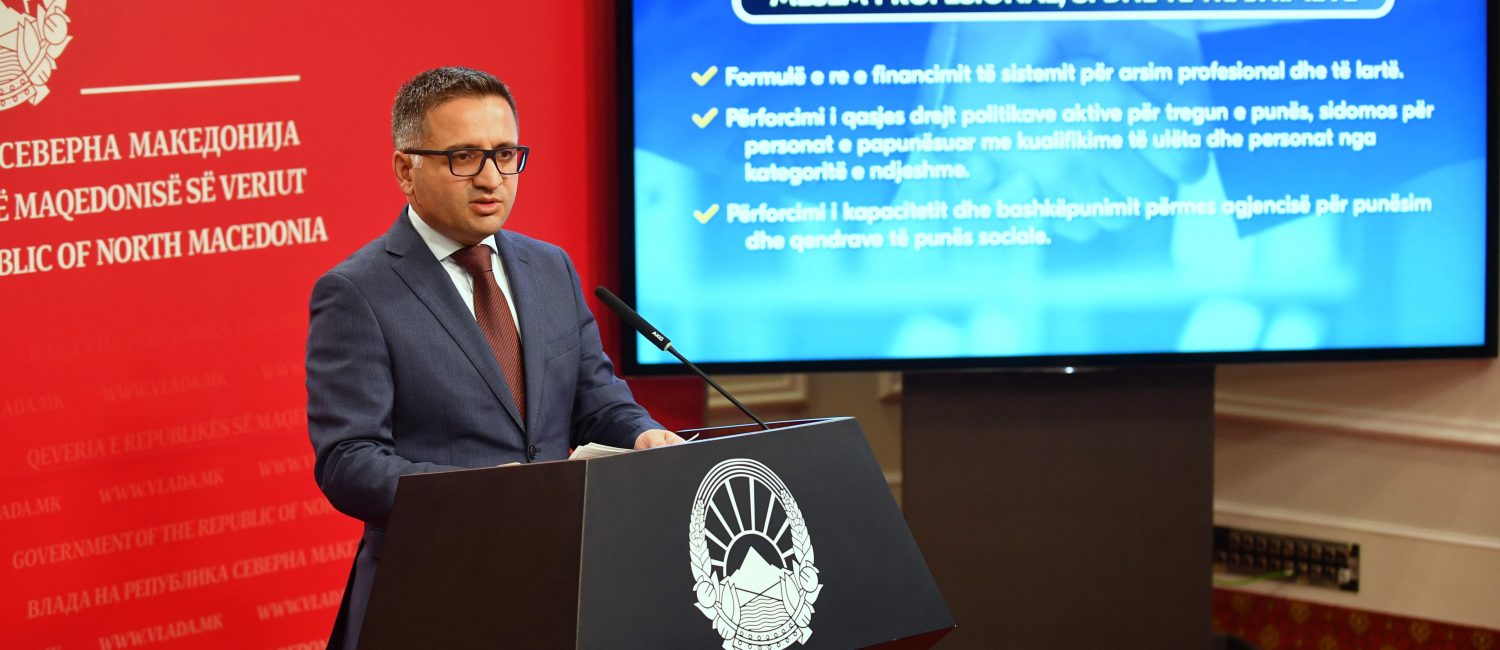13th July 2021, Skopje – Continued fiscal, economic and social policy response to mitigate the impact of the pandemic and to foster a medium-term recovery are the main recommendations arising from the Economic Reform Programme 2021-2023, adopted jointly with the European Union, the implementation of which will be a joint effort by the respective ministers and the institutions’ directors. The assessment of the European Commission of the Economic Reform Programme 2021 – 2023 showed that the country has the highest result of 61.1% implementation of the joint conclusions adopted in May 2020, compared to the countries of the Western Balkans and Turkey. This is the best result since the beginning of the process of preparing economic reform programme.

Minister of Finance, Fatmir Besimi, underlined at today’s press conference, presenting the adopted conclusions on the basis of the Economic Reform Programme 2021-2023, which includes, for the first time, projections beyond the three-year horizon, envisaging 5.9% growth in 2025, with the average annual growth in the period 2021-2025 to amount to 5.3%.
– As regards the macro-fiscal policies, the recommendations pertain to targeted temporary support measures for vulnerable households and businesses, followed by gradual fiscal consolidation, while with respect to the structural reforms, the guidance focuses on further enhancing the business environment, strengthening the vocational education and training system and improving the access of unemployed persons to active labour market measures.
Adding that amid recurring waves of the pandemic, a huge challenge to our and to the economies of the countries in the region is to get back on the path of recovery and growth, he said that we need to be highly cautious not to halt the support abruptly, but rather gradually and in a targeted manner.
– The support will continue in 2021 as well through various economic measures. The Government has already adopted two sets of measures, which are envisaged in the Supplementary Budget pending parliamentary procedure. The measures are aimed at mitigating the impact of the pandemic on the vulnerable categories and fostering faster recovery of the domestic economy, Besimi said.

Minister Besimi indicated that activities will be undertaken to the end of strengthening the public investment management, continuing the support to the economy through public investments by redesigning the structure of public finances via increasing the share of capital expenditures, improving the revenue collection, adopting new Law on PPP, the drafting of which has already been prepared and consultations have been held, thus ensuring its efficient implementation. Fiscal Council will be established under the new Budget Law, and activities are being undertaken related to the software solution for setting up a state aid registry to the end of improving transparency and evaluation of firm-level subsidies.
He pointed out that activities will be undertaken aimed at maintaining a strong financial sector regulatory framework in line with the international and EU best practices, continuing the consultations with the businesses and the social partners on the new legislation affecting their operations, digitalizing the public services for businesses and citizens, implementing the Strategy for Formalisation of the Informal Economy.
Competent institutions will use the list of mapped para-fiscal charges to clarify the public services provided through the proceeds of individual charges and identify those that need to be eliminated, remodelled or streamlined.
To the end of reducing informal economy, measures will be undertaken to encourage the registered economic activities and transactions, focusing on the sectors with the highest probability for undeclared jobs.

New formula for the financing of the VET system and of higher education will be developed, with a focus on the functioning of the Regional VET Centres.
– Economic growth cannot be doubled without adequate human resources matching the labour market demand, the Minister said, underlining that access to active labour market policies will be strengthened, in particular for low-skilled unemployed and people in vulnerable situations.
He pointed out that reforms included in the Economic Reform Programme will contribute to boosted competitiveness of the economy, accelerated economic growth and increased growth potential, job creation and unemployment reduction.
Economic Reform Programme is the crucial strategic document in the economic dialogue with the European Commission and the EU Member States, the preparation of which is coordinated by the Ministry of Finance. The document is prepared each year, and it is a preparation for participation in the process of economic and fiscal supervision of the EU Member States, i.e. for the inclusion in the process of European Semester, to the end of implementing the key reform processes in the country which will intensify the dialogue with the European Union.
















